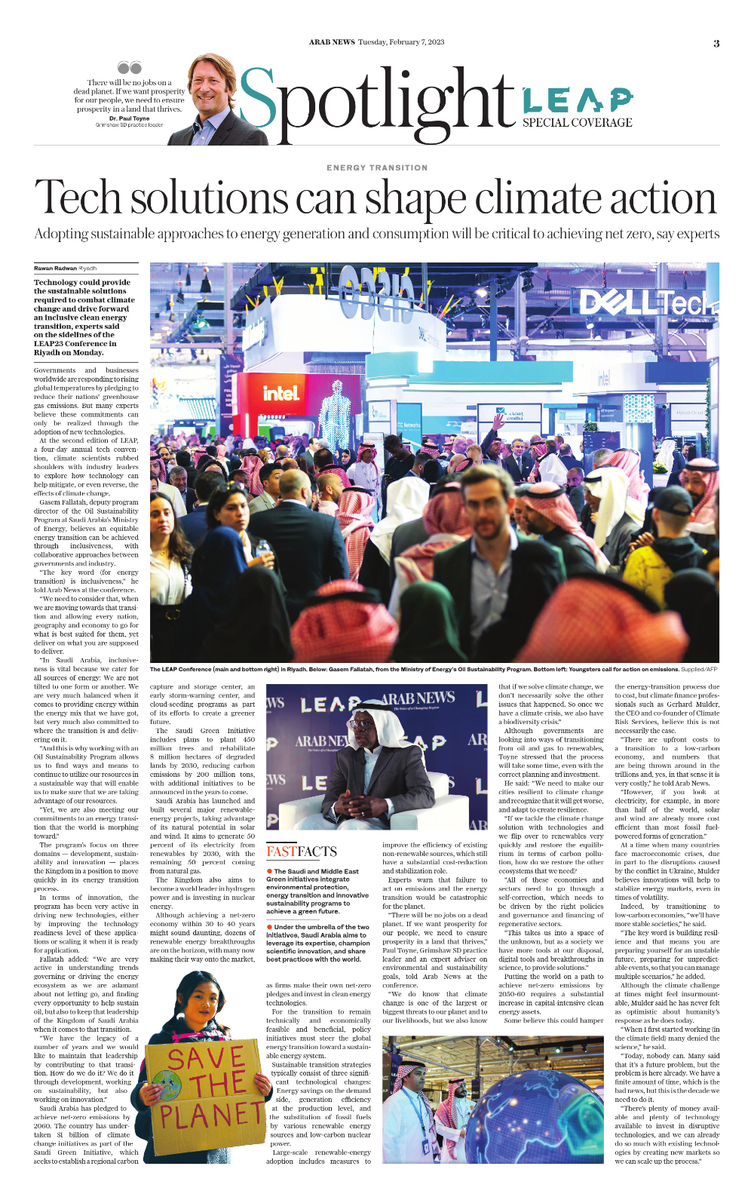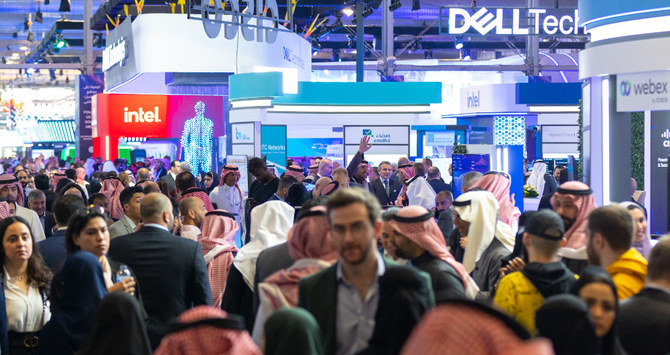RIYADH: Technology could provide the sustainable solutions required to combat climate change and drive forward an inclusive clean energy transition, experts said on the sidelines of the LEAP23 Conference in Riyadh on Monday.
Governments and businesses worldwide are responding to rising global temperatures by pledging to reduce their greenhouse gas emissions. However, many experts believe these commitments can only be realized through the adoption of new technologies.
At the second edition of LEAP, a four-day annual tech convention, climate scientists rubbed shoulders with industry leaders to explore how technology can help mitigate, or even reverse, the effects of climate change.
Dr. Gasem Fallatah, deputy program director of the Oil Sustainability Program at Saudi Arabia’s Ministry of Energy, believes an equitable energy transition can be achieved through inclusiveness with collaborative approaches between governments and industry.
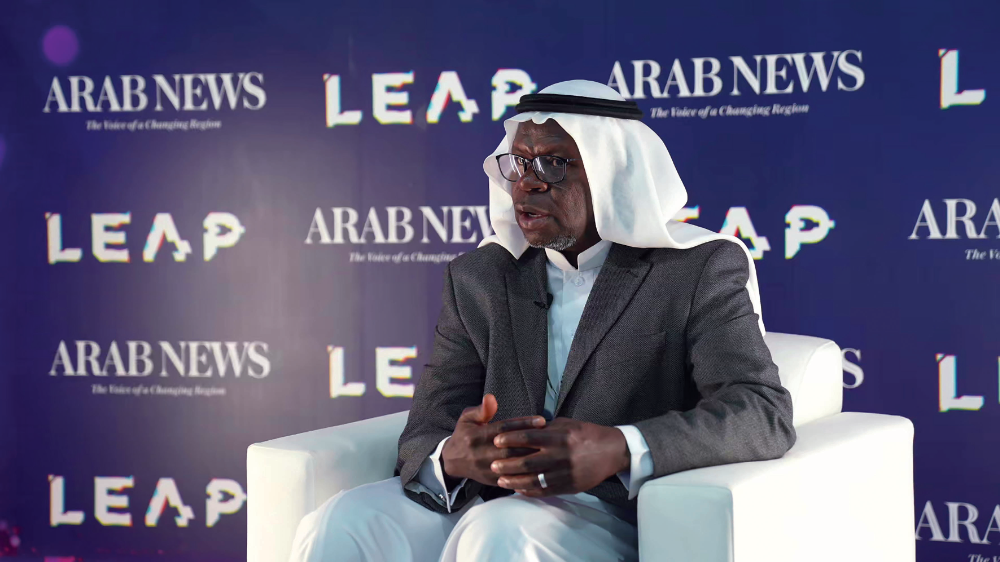
Gasem Fallatah, from the Ministry of Energy’s Oil Sustainability Program. (AN Photo)
“The key word [for energy transition] is inclusiveness,” Fallatah told Arab News on the sidelines of LEAP23.
“We need to consider that when we are moving towards that transition and allowing every nation, geography, and economy to go for what is best suited for them, yet deliver on what you are supposed to deliver.
“In Saudi Arabia, inclusiveness is vital because we cater for all sources of energy: We are not tilted to one form or another. We are very much balanced when it comes to providing energy within the energy mix that we have got, but very much, also, committed to where the transition is and delivering on it.
“And this is why working with an Oil Sustainability Program allows us to find ways and means to continue to utilize our resources in a sustainable way that will enable us to make sure that we are taking advantage of our resources. Yet, we are also meeting our commitments to an energy transition that the world is morphing towards.”
FASTFACTS
• The Saudi and Middle East Green Initiatives integrate environmental protection, energy transition and innovative sustainability programs to achieve a green future.
• Under the umbrella of the two initiatives, Saudi Arabia aims to leverage its expertise, champion scientific innovation, and share best practices with the world.
The program’s focus on three domains — development, sustainability, and innovation — places the Kingdom in a position to move quickly in its energy transition process.
In terms of innovation, the program has been very active in driving new technologies, either by improving the technology readiness level of these applications or scaling it when it is ready for application.
Fallatah added: “We are very active in understanding trends governing or driving the energy ecosystem as we are adamant about not letting go and finding every opportunity to help sustain oil, but also to keep that leadership of the Kingdom of Saudi Arabia when it comes to that transition.
“We have the legacy of a number of years and we would like to maintain that leadership by contributing to that transition. How do we do it? We do it through development, working on sustainability, but also working on innovation.”
Saudi Arabia has pledged to achieve net-zero emissions by 2060. The country has undertaken $1 billion in climate change initiatives as part of the Saudi Green Initiative, which seeks to establish a regional carbon capture and storage center, an early storm warning center, and cloud-seeding programs as part of its efforts to create a greener future.
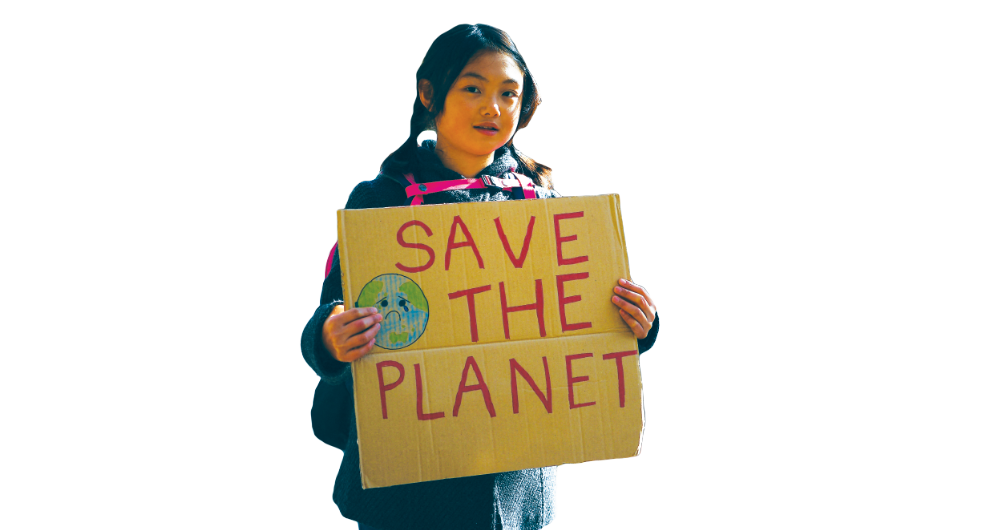
Youngsters call for action on emissions. (AFP)
The Saudi Green Initiative includes plans to plant 450 million trees and rehabilitate 8 million hectares of degraded lands by 2030, reducing 200 million tons of carbon emissions with additional initiatives to be announced in the years to come.
Saudi Arabia has launched and built several major renewable energy projects, taking advantage of its natural potential in solar and wind. It aims to generate 50 percent of its electricity from renewables by 2030, with the remaining 50 percent coming from natural gas.
The Kingdom also aims to become a world leader in hydrogen power and is investing in nuclear energy.
Although achieving a net-zero economy within 30 to 40 years may sound daunting, dozens of renewable energy breakthroughs are on the horizon, with many now making their way onto the market, as firms make their own net-zero pledges and invest in clean energy technologies.
For the transition to remain technically and economically feasible and beneficial, policy initiatives must steer the global energy transition toward a sustainable energy system.
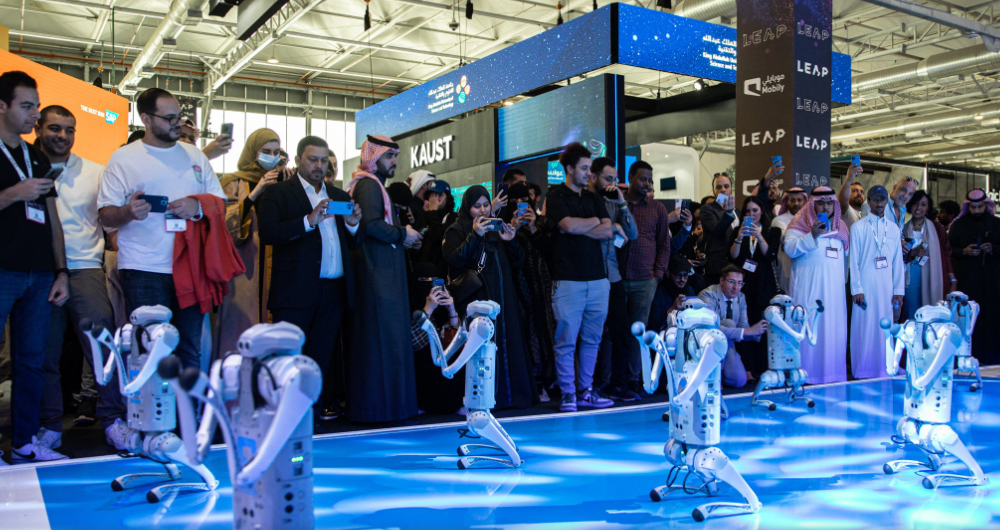
The LEAP Conference attendees watch a demonstration. (Supplied)
Sustainable transition strategies typically consist of three significant technological changes: Energy savings on the demand side, generation efficiency at the production level, and fossil fuel substitution by various renewable energy sources and low-carbon nuclear.
Large-scale renewable energy adoption includes measures to improve the efficiency of existing non-renewable sources, which still have a substantial cost-reduction and stabilization role.
Experts warn that failure to act on emissions and the energy transition would be catastrophic.
“There will be no jobs on a dead planet. If we want prosperity for our people, we need to ensure prosperity in a land that thrives,” Dr. Paul Toyne, Grimshaw SD practice leader and expert adviser on environmental and sustainability goals, told Arab News at LEAP23.
“We do know that climate change is one of the largest or biggest threats to our planet and to our livelihoods, but we also know that if we solve climate change, we don’t necessarily solve the other issues that happened. So once we have a climate crisis, we also have a biodiversity crisis.”
Although governments are looking into ways of transitioning from oil and gas to renewables, Toyne stresses that the process will take some time, even with the right planning and investment.
He said: “We need to make our cities resilient to climate change and recognize that it will get worse, and adapt to create resilience.
“If we tackle the climate change solution with technologies and we flip over to renewables very quickly and restore the equilibrium in terms of carbon pollution, how do we restore the other ecosystems that we need?
“All of these economies and sectors need to go through a self-correction, which needs to be driven by the right policies and governance and financing of regenerative sectors.
“This takes us into a space of the unknown, but as a society we have more tools at our disposal, digital tools and breakthroughs in science, to provide solutions.”
Putting the world on a path to achieve net-zero emissions by 2050-60 requires a substantial increase in capital-intensive clean energy assets.
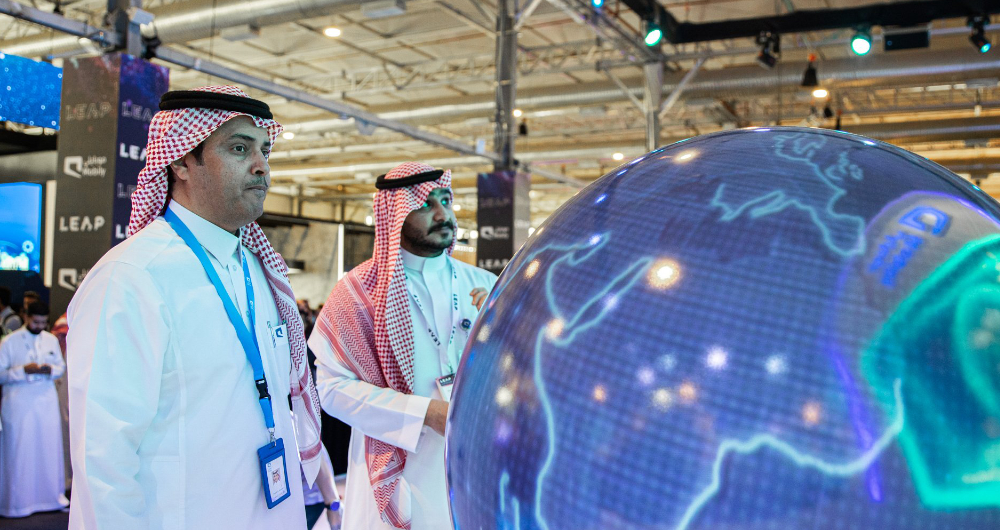
The four-day annual tech convention in Riyadh is in its second year. (Supplied)
Some believe this could hamper the energy transition process due to cost, but climate finance professionals such as Gerhard Mulder, CEO and co-founder of Climate Risk Services, believe this is not necessarily the case.
“There are upfront costs to a transition to a low-carbon economy, and numbers that are being thrown around in the trillions and, yes, in that sense it is very costly,” he told Arab News.
“However, if you look at electricity, for example, in more than half of the world, solar and wind are already more cost efficient than most fossil fuel-powered forms of generation.”
At a time when many countries face macroeconomic crises, due in part to the disruptions caused by the conflict in Ukraine, Mulder believes innovations will help stabilize energy, even in times of volatility. Indeed, by transitioning to low-carbon economies, “we’ll have more stable societies,” he said.
“The key word is building resilience and that means you are preparing yourself for an unstable future, preparing for unpredictable events, so that you can manage multiple scenarios,” he added.
Although the climate challenge at times feels insurmountable, Mulder claims he has never felt as optimistic about humanity’s response as he does today.
“When I first started working [in the climate field] many denied the science,” he said. “Today, nobody can. Many said that it’s a future problem, but the problem is here already. We have a finite amount of time, which is the bad news, but this is the decade we need to do it.
“There’s plenty of money available and plenty of technology available to invest in disruptive technologies, and we can already do so much with existing technologies by creating new markets so we can scale up the process.”
